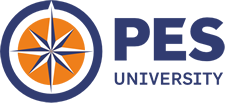The Curriculum Design followed in our B.Sc. (Hons) Economics program equips the students with the right skill set for core research and analytical work profiles in Economics, Finance and Management. It is a perfect balance of theory and application where the students are trained in wide variety of subject basket, including the core economic subjects, management, finance, and quantitative subjects. The design of curricula is to develop analytical and quantitative abilities, problem-solving aptitude and cognitive thinking. The academics here are research oriented and research projects and case studies constitute an important element of pedagogy. Regular interactions with eminent experts from Industry, academia and policy circles gives the students the edge over their peers in analysing the economy problems and find adequate solutions.
The Teaching Learning Process in our B.Sc. (Hons) Economics program maintains academic excellence through the rigorous quantitative training modules which differentiates them from their peers. Spread over 8 semesters, the programme aims to train students to critically and objectively analyse issues related to the economy, business, public policy and society. The learning methods adopted are lecturing, flip classrooms, peer learning, research-based learning, and also higher order learning through case studies and simulations. The Pedagogy adopted ensures that the needs of the slow learners and fast learners are taken care of and maintains a harmony between the different learning levels. The students are exposed to learning from Industry experts, Industrial visits where they get to see how in real world the system functions and the skills that the industry demands in the professional working environment. The continuous learning-evaluation pattern is designed to give a conducive learning environment to the students which is stress-free, smooth and productive.






























